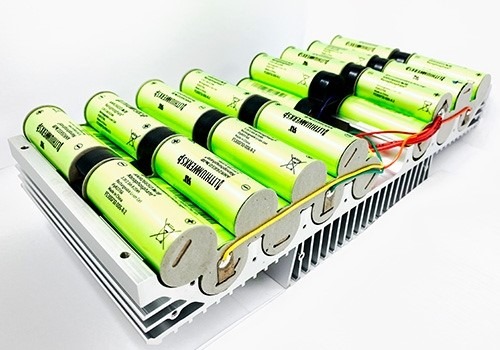Rechargeable lithium ion battery packs play a vital role in powering smart home technologies and IoT devices, offering reliable and efficient energy storage solutions for residential applications. Rechargeable lithium ion battery packs are at the forefront of energy storage technology, providing superior performance and versatility compared to traditional nickel or lead-based chemistries. With their high energy density, low self-discharge rates, and ability to handle high discharge currents, lithium ion battery packs are well-suited for powering a wide range of smart home devices and IoT applications.
Enabling Smart Home Automation
Rechargeable lithium ion battery packs play a pivotal role in advancing smart home automation, offering a dependable and portable power solution for diverse devices and systems. From smart thermostats and security cameras to voice-activated assistants and connected appliances, these battery packs ensure uninterrupted operation and seamless integration within the smart home ecosystem. Whether it's controlling lighting, monitoring energy usage, or managing home security, lithium-ion battery packs play a crucial role in enhancing convenience and efficiency for homeowners.
Powering IoT Devices and Sensors
In addition to smart home technologies, rechargeable lithium ion battery pack power a multitude of IoT devices and sensors deployed throughout residential environments. These battery packs provide the energy needed to enable wireless connectivity, data transmission, and remote monitoring capabilities essential for IoT applications. Whether it's tracking environmental conditions, detecting motion, or monitoring energy consumption, lithium ion battery packs ensure continuous operation and reliable performance for IoT devices in residential settings.
Advantages of Rechargeable Lithium-ion Battery Packs
- Longevity: Rechargeable lithium ion battery packs offer long cycle and calendar life, providing extended usage periods and minimizing the need for frequent replacements.
- Compact Size: Lithium ion battery packs are lightweight and compact, making them ideal for integration into small form factor devices and appliances commonly found in smart homes and IoT ecosystems.
- Fast Charging: With their preferred charge method of constant voltage/constant current, lithium ion battery packs support fast charging capabilities, allowing for quick and convenient replenishment of energy reserves.
Personalized Battery Pack Solutions
At Emerging Power, we specialize in designing and manufacturing custom lithium ion battery pack tailored to meet the specific requirements of smart home technologies and IoT applications. Our battery packs are available in various chemistries, sizes, and configurations to accommodate the diverse needs of residential users. Whether it's optimizing energy density, maximizing cycle life, or ensuring compatibility with IoT protocols, we work closely with our clients to deliver personalized battery pack solutions that meet their exact specifications.
Enhanced Portability
Rechargeable lithium ion battery packs enhance the portability of smart home devices and IoT gadgets, allowing them to operate cordlessly and independently of power outlets. This portability enables greater flexibility in device placement and usage scenarios, facilitating convenient deployment and integration within residential environments. Whether it's a wireless security camera, a portable smart speaker, or a wearable health monitor, lithium-ion battery packs provide the freedom to use these devices anywhere in the home without being tethered to a power source.
Wrapping Up
Rechargeable lithium ion battery packs play a crucial role in supporting the growth of smart home technologies and IoT devices in residential applications. With their reliability, efficiency, and versatility, lithium ion battery packs enable seamless integration, uninterrupted operation, and enhanced convenience for homeowners. As smart home automation and IoT adoption continue to rise, the demand for high-performance rechargeable battery packs will only increase, driving further innovation and advancements in energy storage technology.

